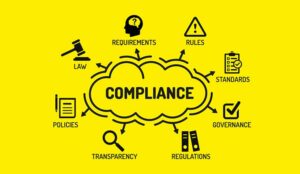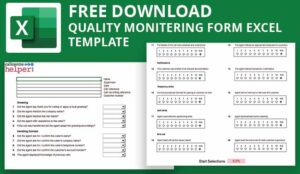This blog summarizes the key points from a recent article from David McGeough at Scorebuddy where he walks you through their compliance checklist, shows you how it works, and gives you some tips on how you can tweak it to fit your industry.
Staying compliant is crucial for any business, especially as data breach risks continue to rise each year. Beyond financial losses, compliance failures can severely damage brand reputation and lead to legal issues – especially in sectors like finance and healthcare.
In 2012, there were just 447 recorded data breaches, while by 2023, that number surged past 3,200, highlighting the growing challenge.
A call centre compliance checklist is now more important than ever. It serves as a structured guide to streamline your compliance processes, ensuring all critical areas are covered.
Think of it as a roadmap that not only keeps your operations compliant but also prepares you for potential incidents.
Your Call Centre Compliance Checklist
Data Security
Call centres handle sensitive data daily, and securing this data is essential to prevent unauthorized access or breaches. Key measures include:
- Strong encryption
- Strict password protocols
- Access control for authorized personnel
- Secure data storage
Following regulations like GDPR, HIPAA, CCPA, and PCI DSS is critical. With breaches averaging $4.88 million in costs, data security safeguards your reputation and customer trust. QA tools can identify risks in real time, ensuring data remains secure.
Network Security
Network security is vital to protect data, prevent downtime, and ensure compliance. Effective tools include:
- Firewalls
- Intrusion detection systems
- Secure VPNs
Regular vulnerability assessments and QA integration allow constant monitoring, helping your call centre stay protected from cyber threats.
Physical Security
Securing physical access to your call centre prevents unauthorized entry and protects valuable assets like servers. Essential measures include:
- ID badges and monitored entry points
- Surveillance
- Secure storage (fire suppression, climate control)
QA tools help enforce physical security policies like workstation log-offs, safeguarding data and assets from internal and external risks.
Customer Authentication
Authenticating customers helps prevent fraud and unauthorized data access. Common methods include:
- Multi-factor authentication (MFA)
- Two-factor authentication (2FA)
- Biometric data
QA systems help monitor compliance with authentication protocols, ensuring agents follow proper steps to secure customer data.
Agent Training
Agents play a crucial role in compliance, handling sensitive information daily. Training them on security protocols and data handling can reduce compliance risks. QA tools help track agent performance, highlighting areas needing additional training.
Call Monitoring and Recording
Compliance around call recording varies by region. Ensure you’re adhering to laws by securing recordings with encryption and clear retention policies. QA systems can automate compliance checks and improve call quality.
Dialling Compliance
Dialling compliance involves respecting Do Not Call (DNC) lists and telemarketing regulations. Standards like TCPA require:
- Respecting time zones
- Limiting call frequency
- Providing opt-out options
QA tools can track compliance with dialling policies, helping avoid fines and enhance customer experience.
Consent and Opt-in
Tracking opt-ins minimizes complaints and penalties. It’s essential to secure explicit consent for marketing and data processing activities. QA tools can verify opt-ins, ensuring agents only contact those who have agreed.
Audits and Compliance Reviews
Routine audits identify vulnerabilities and ensure adherence to standards. QA tools support compliance reviews by maintaining audit trails and tracking metrics for corrective actions.
Incident Response Plan
A comprehensive incident response plan covers:
- Reporting and investigation
- Containment and recovery
Regular drills prepare teams, and QA software can review incidents to refine protocols for future readiness.
Regulatory Adherence
Stay up-to-date on regulations relevant to your industry, such as HIPAA, GDPR, or PCI DSS. Ensure third-party vendors comply as well, and consider accessibility to accommodate all customers.
Compliance Policy
A clear, accessible compliance policy reinforces your centre’s commitment to data security. Use QA data to keep policies current as regulations and team structures evolve.
Industry-Specific Compliance Checklists
Financial Services
Protect financial data with regulations like PCI DSS, GLBA, and KYC. A compliance checklist should emphasize:
- Data encryption
- Secure authentication
- Access controls
Regular audits and updated agent training are key to maintaining security and regulatory alignment.
Healthcare
For healthcare, call centres need to comply to strict regulations to protect patient information, such as HIPAA. Focus on securing personal health information (PHI) through:
- Strong authentication
- Data encryption
- Restricted access
Agents should receive HIPAA training, and audits help ensure compliance remains robust.
Education
In the education sector, protect student personal information under FERPA. Compliance involves secure data handling practices, including:
- Access controls
- Data retention policies
- Third-party vendors must also meet compliance standards.
Government & Public Sector
Government call centres handle sensitive data that requires compliance with FISMA and similar standards. Key focus areas include:
- Data security
- Access control
- Background checks
Technology and Telecommunications
These industries handle diverse data types, requiring adherence to laws like GDPR, CCPA, and cybersecurity regulations. Compliance should include:
- Encryption
- Consent tracking
- Network monitoring
- Vulnerability management
- Data loss prevention (and recovery)
- An incident response plan is also essential.
Legal
Legal call centres manage confidential information and require strict protocols to protect client-attorney privilege. Compliance involves data encryption, secure storage, and restricted access, with thorough agent training to handle sensitive information securely.
This blog post has been re-published by kind permission of Scorebuddy – View the Original Article
For more information about Scorebuddy - visit the Scorebuddy Website
Call Centre Helper is not responsible for the content of these guest blog posts. The opinions expressed in this article are those of the author, and do not necessarily reflect those of Call Centre Helper.
Author: Scorebuddy
Reviewed by: Megan Jones
Published On: 25th Nov 2024
Read more about - Guest Blogs, David McGeough, Scorebuddy






 Scorebuddy is quality assurance solution for scoring customer service calls, emails and web chat. It is a dedicated, stand-alone staff scoring system based in the cloud, requiring no integration.
Scorebuddy is quality assurance solution for scoring customer service calls, emails and web chat. It is a dedicated, stand-alone staff scoring system based in the cloud, requiring no integration. 









